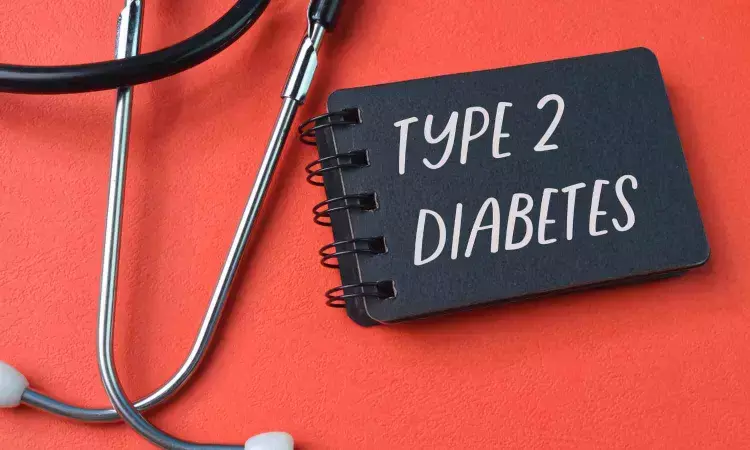- Home
- Medical news & Guidelines
- Anesthesiology
- Cardiology and CTVS
- Critical Care
- Dentistry
- Dermatology
- Diabetes and Endocrinology
- ENT
- Gastroenterology
- Medicine
- Nephrology
- Neurology
- Obstretics-Gynaecology
- Oncology
- Ophthalmology
- Orthopaedics
- Pediatrics-Neonatology
- Psychiatry
- Pulmonology
- Radiology
- Surgery
- Urology
- Laboratory Medicine
- Diet
- Nursing
- Paramedical
- Physiotherapy
- Health news
- Fact Check
- Bone Health Fact Check
- Brain Health Fact Check
- Cancer Related Fact Check
- Child Care Fact Check
- Dental and oral health fact check
- Diabetes and metabolic health fact check
- Diet and Nutrition Fact Check
- Eye and ENT Care Fact Check
- Fitness fact check
- Gut health fact check
- Heart health fact check
- Kidney health fact check
- Medical education fact check
- Men's health fact check
- Respiratory fact check
- Skin and hair care fact check
- Vaccine and Immunization fact check
- Women's health fact check
- AYUSH
- State News
- Andaman and Nicobar Islands
- Andhra Pradesh
- Arunachal Pradesh
- Assam
- Bihar
- Chandigarh
- Chattisgarh
- Dadra and Nagar Haveli
- Daman and Diu
- Delhi
- Goa
- Gujarat
- Haryana
- Himachal Pradesh
- Jammu & Kashmir
- Jharkhand
- Karnataka
- Kerala
- Ladakh
- Lakshadweep
- Madhya Pradesh
- Maharashtra
- Manipur
- Meghalaya
- Mizoram
- Nagaland
- Odisha
- Puducherry
- Punjab
- Rajasthan
- Sikkim
- Tamil Nadu
- Telangana
- Tripura
- Uttar Pradesh
- Uttrakhand
- West Bengal
- Medical Education
- Industry
Two medication classes reduced cardiovascular and liver events in people with type 2 diabetes, suggests study

GLP-1 receptor agonists (GLP-1s) and SGLT-2 inhibitors lower the risk of major cardiovascular events like heart attacks and severe liver complications compared to other diabetes treatments, according to data being presented Sunday at ENDO 2024, the Endocrine Society’s annual meeting in Boston, Mass.
“Before this study, there was limited information about how these specific diabetes medications work in patients with both type 2 diabetes and metabolic dysfunction-associated steatotic liver disease (MASLD),” said Alexander Kutz, M.D., M.P.H., M.Sc., a research fellow in the Division of Pharmacoepidemiology and Pharmacoeconomics, Department of Medicine, at Brigham and Women's Hospital and Harvard Medical School in Boston, Mass. “Our study shows that GLP-1 receptor agonists and SGLT-2 inhibitors are more beneficial in preventing heart-related events compared to another group of drugs such as dipeptidyl peptidase 4 inhibitors (DPP-4 inhibitors), and GLP-1s also help reduce severe liver events.”
The researchers reviewed Medicare data documented from 2013 to 2020 and a large U.S. health insurance database from 2013 to 2022. They performed two analyses, including adults with type 2 diabetes and metabolic dysfunction-associated steatotic liver disease who started GLP-1s, SGLT-2 inhibitors, or DPP-4is.
They analyzed the risk for acute heart attack, ischemic stroke, hospitalization for heart failure, or all-cause mortality. They also examined the incidence of serious liver events.
The people who used GLP-1s or SGLT-2 inhibitors had fewer cardiovascular events than those who were given DPP-4 inhibitors. The researchers also found that GLP-1s reduced severe liver events compared to DPP-4 inhibitors. Moreover, severe adverse events weren’t any more frequent than when people were treated with DPP-4 inhibitors.
Kutz said these findings suggest GLP-1 receptors and SGLT-2 inhibitors may be more beneficial than other diabetes medications for patients with type 2 diabetes and MASLD. In addition, using these drugs, which have become popular in recent years, reduces the risk of heart-related events and serious liver complications.
Kutz added that by introducing this treatment, patients with type 2 diabetes and MASLD may experience fewer hospitalizations, despite complex medical needs.
“An increasing amount of people live with type 2 diabetes, and a significant proportion of these individuals also struggle with MASLD,” Kutz said. “Understanding which medications can effectively manage these conditions and prevent severe complications is crucial for their health and quality of life.”
Reference:
Two medication classes reduced cardiovascular and liver events in people with type 2 diabetes, The Endocrine Society, Meeting: ENDO 2024.
Dr Kamal Kant Kohli-MBBS, DTCD- a chest specialist with more than 30 years of practice and a flair for writing clinical articles, Dr Kamal Kant Kohli joined Medical Dialogues as a Chief Editor of Medical News. Besides writing articles, as an editor, he proofreads and verifies all the medical content published on Medical Dialogues including those coming from journals, studies,medical conferences,guidelines etc. Email: drkohli@medicaldialogues.in. Contact no. 011-43720751


